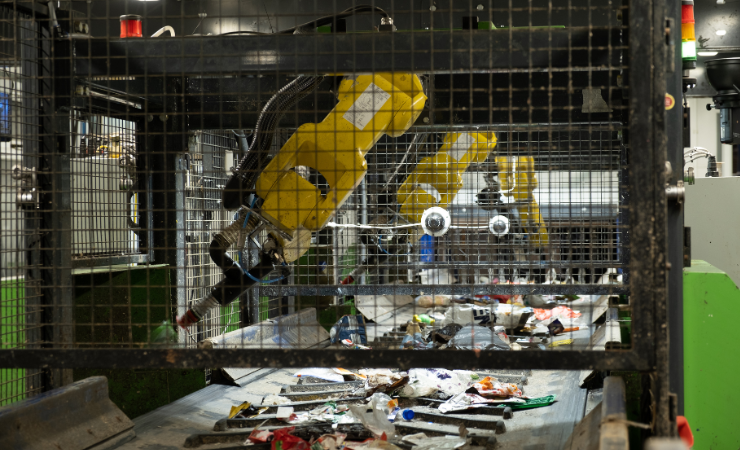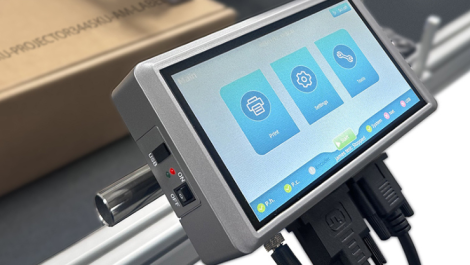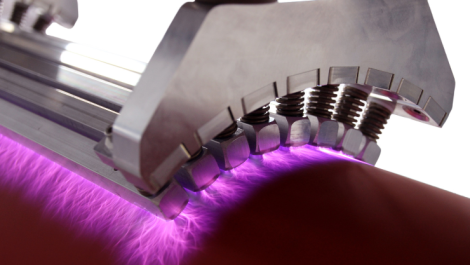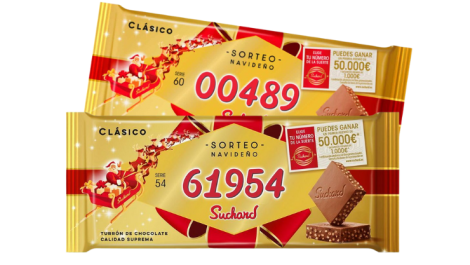Substrate suppliers are responding to current needs and helping define the next generation of packaging possibilities by ensuring material performance keeps pace with press innovation.
Recyclability of packaging is a complicated subject, not least because in the UK each regional authority has its own guidelines and criteria for what can and cannot be recycled.
Yet when sat across from a brand however who asks, “Is this packaging going to be easily recycled for my customers” you can’t sit there and say, “Well, it depends where they live.”
Printers and packaging designers need to be able to work with materials that are generally considered easy to recycle, and as the most basic rule of thumb goes, the fewer different types of materials used, is generally the better.
Operational flexibility is one of digital’s most significant advantages to packaging producers. Shorter runs reduce the need for extensive inventories, minimising the risk of product obsolescence and allowing companies to respond more quickly to changing consumer preferences. Substrate advancements tailored for digital presses also lead to more efficient production, with fewer setup steps and improved run consistency.
In addition, the precision and efficiency of digital printing, when combined with materials designed for compatibility and stability, support waste reduction goals. Less spoilage, optimised ink adhesion, and streamlined post-press handling contribute to higher productivity and reduced material loss. These gains in efficiency directly support initiatives to reduce resource use and improve production effectiveness.
The packaging industry is shifting toward materials that align with broader sustainable goals around recyclability, compostability, adding PCR, and reducing single-use plastics. While not every substrate meets all such criteria, substrate developers are increasingly focused on creating options that deliver performance while supporting responsible packaging design. This alignment helps digital printers meet brand mandates and regulatory requirements while maintaining the agility and responsiveness that make digital products attractive.
Sal Pellingra, vice president of global package design, Applications and Business Development, said “As digital technologies continue to mature, the role of substrates will only grow in importance. Substrate suppliers are responding to current needs and helping define the next generation of packaging possibilities by ensuring material performance keeps pace with press innovation.
“Substrate innovation is a driving force behind the continued expansion of digital printing in the labels and packaging market. Through targeted development and close industry collaboration, substrate suppliers empower digital printers to explore new markets, enhance production efficiency, and reduce waste—all while meeting the performance demands of modern packaging. All this enables a broader range of formats and sustainable options to brands and retailers requiring short run digital solutions to successfully launch new products.”
Top of the conversation
The recent RECOUP Summit, held on 30 April in Leeds, spoke exactly on this topic and its first session of the day looked at how technological advances are helping to open up the recycling process to more material types.
Geoff Brightly, head of sustainability at Mura, discussed how the company is looking to facilitate the circular economy by connecting two sectors at opposite ends of a linear plastics value chain, providing a recycling route for post-consumer, multi-layered flexible and rigid waste plastics at scale, and a viable recycling alternative to incineration and landfill that targets hard to recycle polymer types.
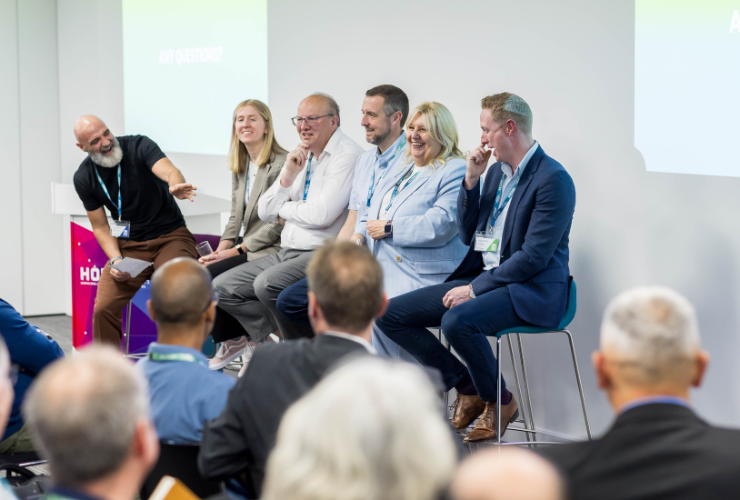
Technological advances in recycling were top of the agenda at the RECOUP Summit
Dissolution recycling, which dissolves the polymer, allowing any pigments and contamination to be removed was another industry changing technological advancement presented by Emmeline Aves, commercial manager at ReVentas. The process removes all contaminants, including multi layered polymers, inks, dyes, pigments, additives, and odour, returning the material back to virgin plastics. Their technology provides dissolution at low pressure and temperature making it a low carbon process. To increase the applications that the end product can be used for, once the site is fully operational in 2027, ReVentas is currently working on getting approval for food contact, a challenging and long process with comprehensive data required.
The need for good data was also touched on by Sam Pine from Grey Parrot who discussed waste intelligence, the idea of bringing real time actionable insights to the post-consumer world that have historically been invisible and unanalysed. Grey Parrot is transforming waste into rich data that is invaluable in creating a world where waste is a valued resource and no longer seen as the end of a products life.
Northeastern boost
Tetra Pak has announced the upgrade of food and beverage carton sorting capabilities at J&B Recycling’s materials recycling facility (MRF) in Hartlepool, in collaboration with British technology start-up, Recycleye. Tetra Pak covered the production and installation of two robotic arms for sorting food and beverage cartons at the facility.
This upgrade will enable J&B Recycling, to increase the sorting of food and beverage cartons for recycling. The group serves several local authorities, including Newcastle City Council, Sunderland City Council, North Tyneside Council, Hartlepool Council and Hull Council.
A further two UK MRFs have received a similar investment to upgrade their food and beverage carton sorting technology, bringing Tetra Pak’s total investment in UK sorting infrastructure in 2025 to £1.4 million. The other sites will be announced later this year.
This investment comes ahead of the introduction of the government’s Simpler Recycling policy for households in March 2026. Tetra Pak has assisted the government in the development of the policy which will mean that everyone in England will be able to dispose of their cartons from kerbside for recycling. Rules were also launched for businesses in England in March of this year requiring premises to recycle specific materials in separate bins. This policy is expected to substantially increase the collection of food and beverage cartons at kerbside, making effective sorting infrastructure for recycling them even more necessary. Awantika Chadha, sustainability manager, Tetra Pak UK, said: “We believe in, and are working towards, a highly effective recycling system. Today’s announcement of the robotic arm installation at J&B Recycling demonstrates our commitment to improving the UK’s recycling infrastructure. We look forward to continuing our collaborative efforts with industry leaders such as Recycleye on new sorting solutions which bolster the wider recycling chain.”
Victor Dewulf, co-founder and CEO of Recycleye, said: “We’re excited to be working with Tetra Pak, ACE UK and MRFs across the UK such as J&B Recycling to improve the effectiveness of food and beverage carton sorting. We believe that technology is a crucial part of the solution to improve recycling systems – and our robotic arm has a track record of improving carton sorting for waste streams. It has been a smooth retrofit with minimum disruption at site to install these two robotic arms and quickly start recovering food and beverage cartons. We are looking forward to supporting the industry further.”
“Substrate innovation is a driving force behind the continued expansion of digital printing in the labels and packaging market.”
Vikki Jackson-Smith, managing director at J&B Recycling, said: “We are proud to be working with Tetra Pak and Recycleye on this important project to enhance beverage carton recycling at our facility. We are grateful for the investment in J&B Recycling and the opportunity to be part of a project that is helping to strengthen the UK’s recycling infrastructure. This technology upgrade will improve the efficiency of our operations and support the local authorities we work with as they prepare for the transition to Simpler Recycling. At J&B Recycling, we are committed to investing in innovative solutions that drive environmentally responsible waste management across the communities we serve.”

